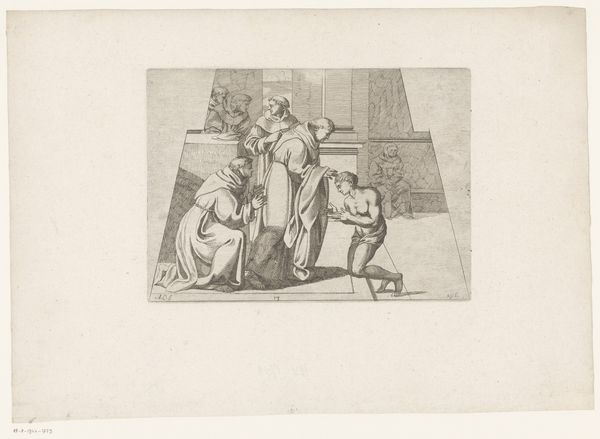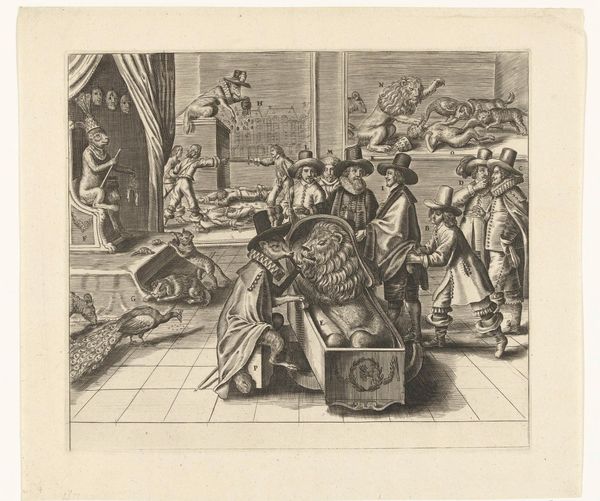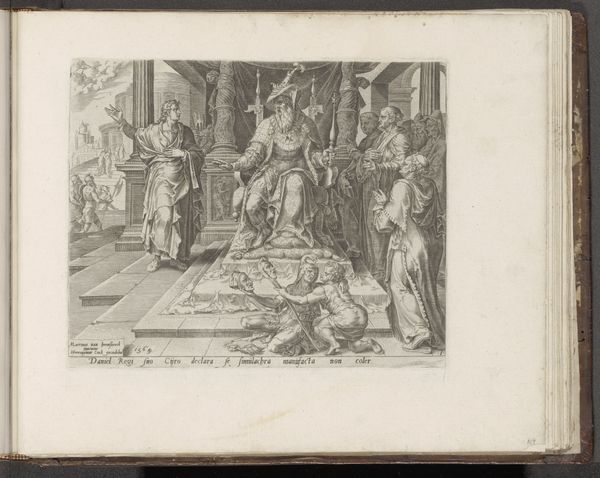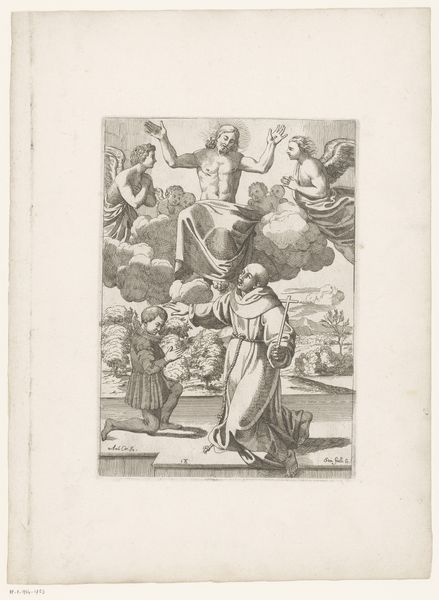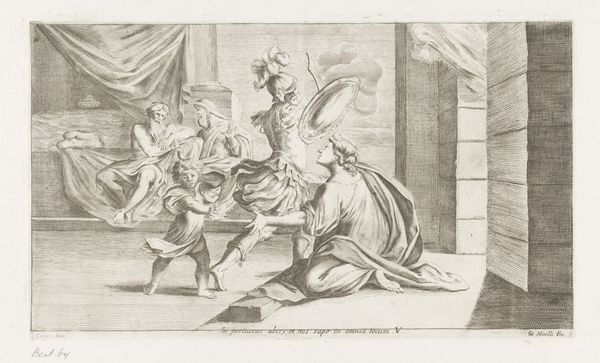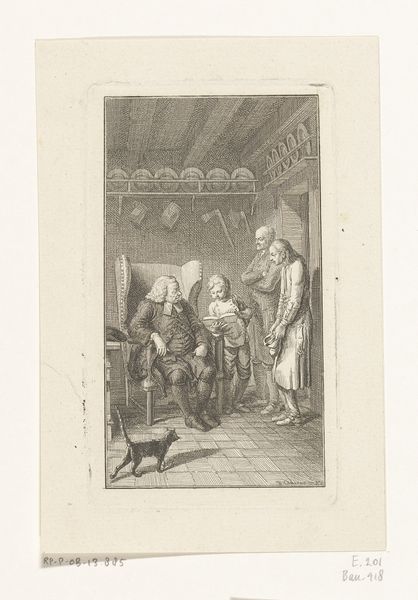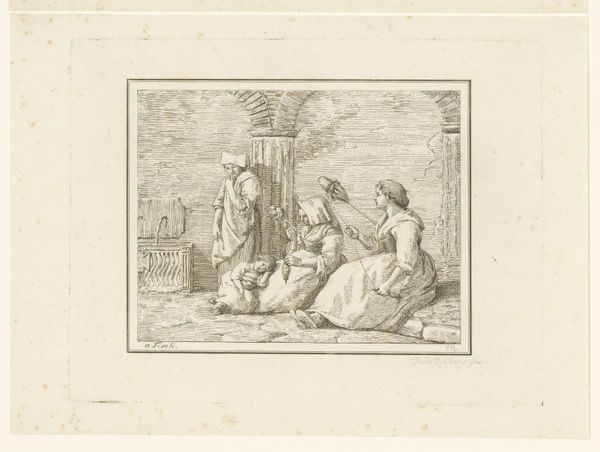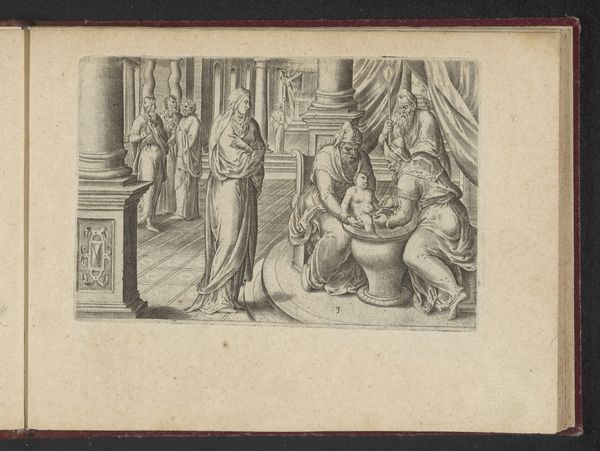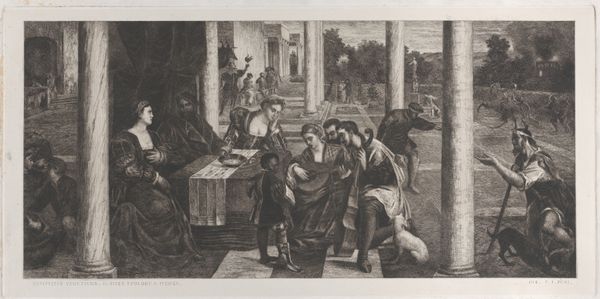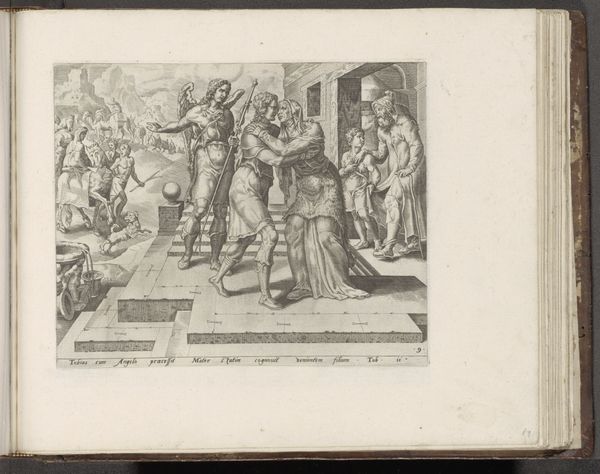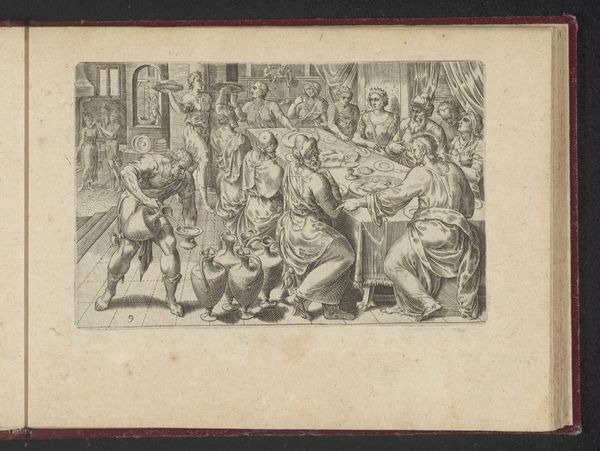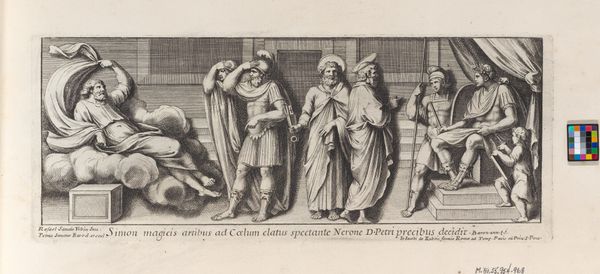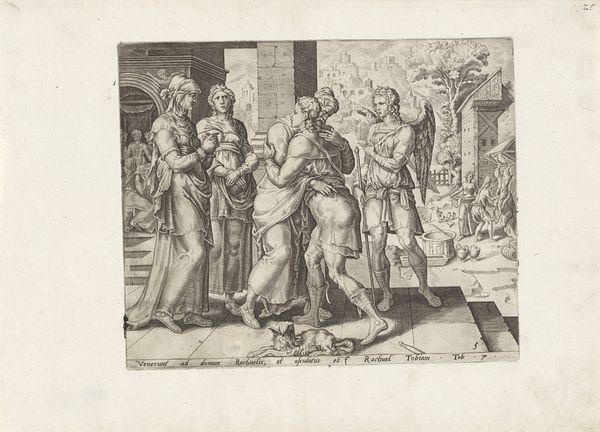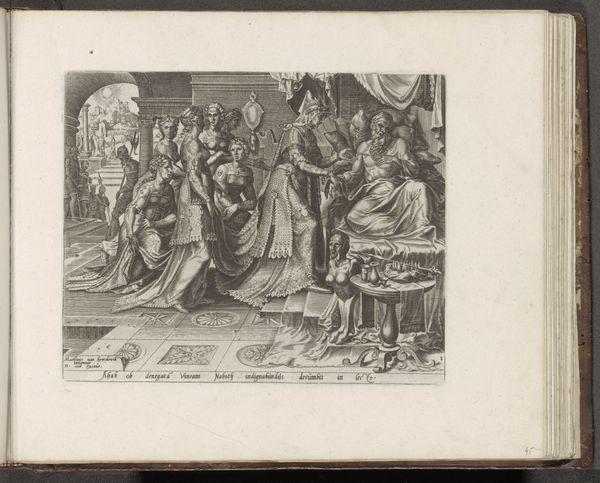
print, engraving
#
baroque
# print
#
history-painting
#
engraving
Dimensions: height 175 mm, width 244 mm
Copyright: Rijks Museum: Open Domain
This print, depicting the apparition of Saint Juan Diego, was made by Simon Guillain the Younger, likely in the 1640s, using the intaglio process of engraving. Consider the sheer labor involved in creating this image. A metal plate, probably copper, would have been painstakingly incised with lines using a tool called a burin. This requires immense skill and control, each stroke contributing to the final composition. The plate would then be inked, wiped, and pressed onto paper, transferring the image. Look closely at the varying densities of lines and the way Guillain uses cross-hatching to create shadows and volume. This isn’t just a picture; it’s the result of direct physical engagement with material, a translation of a vision into a tangible form. The print becomes a testament to the engraver’s mastery, and the way in which a devotional image can be disseminated through the relatively new medium of printmaking. It’s a reminder that even seemingly "flat" images have a rich, layered history of making.
Comments
No comments
Be the first to comment and join the conversation on the ultimate creative platform.
